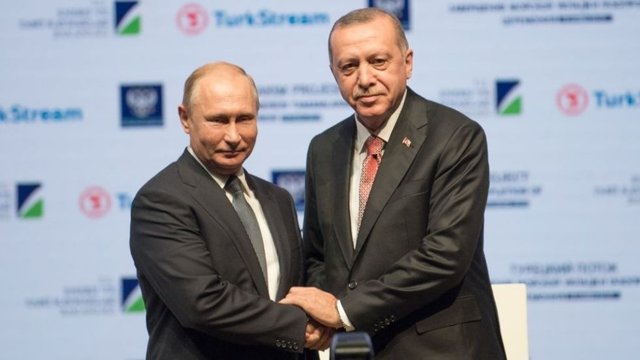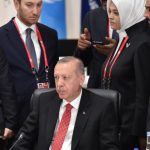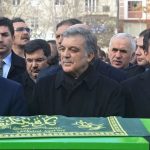The delivery of the Russian S-400 missile system to Turkey has focused global attention on the former Ottoman and Eastern Roman Empires.
The S-400 system presents critical security and defense investment issues for the U.S., since it would collect data via its radar system and be serviced intermittently by Russian personnel. This, together with human intelligence collection of F-35 takeoff and landing times, would be sufficient for Russian discrimination systems to develop an F-35 radar profile, rendering the F-35’s critical stealth technology obsolete.
The S-400 has been sold to China and deployed by the People’s Liberation Army Rocket Force (PLARF) in the Taiwan Strait, and Russia has offered it to Iran, so it is possible that the U.S. Air Force may face the S-400 in future skirmishes.
A workable solution to this geopolitically explosive conundrum is for Turkey to pay Russia for the S-400 but not put it into service — and for the U.S. to loan out, with conditions, equivalent Patriot systems to Turkey, a strategic frontline NATO member.
President Trump last week said Turkey no longer can participate in the F-35 program, though Turkey has asked the White House to reverse its decision. If we fail to reach agreement, the Pentagon will complete its plan to remove Turkish companies from supplying components to the F-35 and cancel the delivery of F-35s to Turkey, and the U.S. will apply sanctions under the 2017 Countering America’s Adversaries Through Sanctions Act (CAATSA).
An agreement between Washington and Ankara could put Turkey front and center in balancing competing interests in the Middle East and, laterally, in South America. It is still possible to precipitate a positive series of outcomes for the United States, Turkey and NATO allies. If not, we will sleep-walk into an undesirable geopolitical realignment.
Turkey is ideologically split between a conservative religious movement, who are cognizant of the benefits of international agreements and proponents of NATO, and an isolationist, secular old guard who look ideologically eastward. The U.S. has proved to be a stable partner, compared to other alliances that Turkey has entertained, be it for cultural reasons or history.
The political parties, therefore, are grouped into the conservative ruling coalition (the AKP and MHP) and the left-wing old guard (the CHP and Vatan). President Recep Tayyip Erdogan and his AKP are a milder successor to the islamic nationalist movement and have worked to bridge the gap between the elite and the people.
Ahead of the failed coup, three years ago this week, Erdogan was indirectly warned by a Russian unit in Syria that intercepted Turkish military communications. It was opportunistic interference by Russia in the internal affairs of a foreign power, since Russia and Turkey have warred for centuries and there is no natural trust between them. Erdogan may feel obligated to repay the debt with the finalization of the TurkStream pipeline and purchase of the inferior, less expensive S-400.
Since the coup attempt, a purge of state officials and others, including the judiciary, has brought the rule of law and political stability into question, leading to severe economic consequences for Turkey. The continuing currency crisis, with a more than 40 percent currency devaluation in the past two years, shows no signs of abating without policy change. Capital is not conspiratorial but takes no chances, whatever the prevailing rate of interest. Capital controls would be only a prelude to continued malaise.
There is an opportunity for President Erdogan to remold the ascending nation; the binds of World War I may still influence but they no longer hold. Turkey’s amended 1982 constitution should be adjusted to provide for individual freedom of speech and expression. The country’s Presidency of Religious Affairs could centralize the practice of Islam in Turkey under a single head imam and a Turkish liberal interpretation of the Koran. This, together with the MHP’s patriotism, would stymie the latent threat of Islamic, far-left and separatist splinter terror organizations on Turkish society, while finding a compromise between political and religious realities.
The key issue to cement Turkey’s near future is reform that leads to a fully independent judiciary. This can be achieved by recruiting the brightest Turkish university law graduates and making them young judges who are free of past customs and norms and can interpret Turkish law and the constitution going forward. This approach has worked well in Uzbekistansince 2016. Such a move could be coupled with amnesty for white-collar crimes, so that the fabric of Turkish society is maintained without further upheaval.
These Turkish policy changes would trigger market euphoria and reverse capital flows, while encouraging foreign investment.
Judicial and religious reform inevitably would strengthen Turkish institutions and this could help to freeze out Venezuelan and Iranian financing that is centered on Istanbul. Harmonizing Turkey’s anti-money laundering procedures with Financial Action Task Force (FATF) recommendations should increase coordination with overseas banks, which will further boost foreign investment in the Turkish economy.
Regime change occurs when a state can no longer support its foreign currency indebtedness, and limiting Venezuela’s ability to fund its regime would bring President Trump’s modern-day Monroe Doctrine forward.
According to Princeton, across the Arab world, Erdogan has an average 51 percent approval rating, compared to 28 percent for Russia’s Vladimir Putin. Making these proposed changes would likely lead to a refreshed U.S. trade deal so that Turkey might act as a significant counterweight to Iranian interests going forward.
BY CHRISTOPHER NIXON COX AND JAMES ARNOLD
Christopher Nixon Cox is a member of the board of directors of the Richard Nixon Foundation and a non-resident fellow in Princeton’s Liechtenstein Institute on Self-Determination. James Arnold is a British financier and geopolitical strategist. Alp Sevimlisoy, a Turkish-British hedge fund manager, contributed to this article.
Source: The Hill



